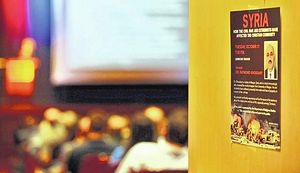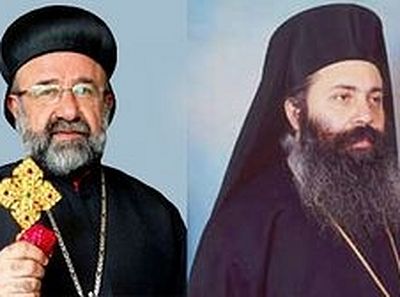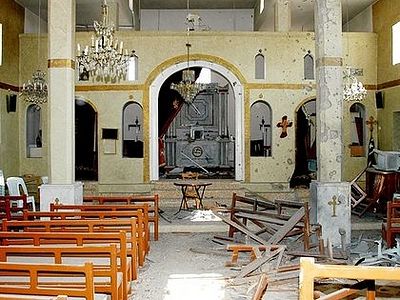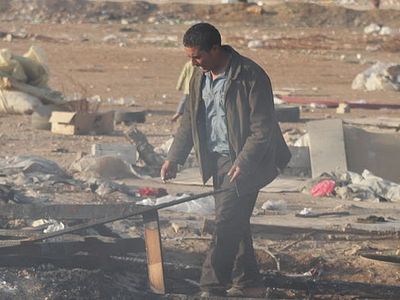Dallas, October 21. 2014

The war in Syria is very personal to Khoudary, who was born and raised in Aleppo, Syria, and now lives in the Back Mountain and practices medicine in the Wyoming Valley. Two of his brothers and other extended family still live in the war-ravaged country.
And on Tuesday night, Khoudary shared his knowledge of the war, the fighters and the victims, and showed photographs of the destruction during a lecture at Misericordia University titled “Syria: How the Civil War and Extremists Have Affected the Christian Community.”

Khoudary also emphasized that most Muslims do not adhere to extremist ideology.
Khoudary, whose family has been Christian for generations, said Christians have been “tolerated” in the Middle East by Muslims ever since the dawn of Islam. But now, priests are being killed “execution style,” 60 to 70 churches or monasteries have been damaged or destroyed, 20 Christian towns have been attacked and evacuated, and many Christians have been killed, some crucified, and women have been stoned in public.
When ISIS took over Raqqu and made it the capitol, it also took over the three Christian churches in the city and made one its headquarters.
Christians had made up about 10 percent of the population in the town. Most left; some stayed and became Dhimmis. Al-Dhimmi means “tolerated religion.” But, much like Jews in Nazi Germany had their homes marked, Christians in Raqqu had their homes marked with the letter “N” in Arabic. The “N” represents “Nazarean,” as Christians there are referred to as followers of Jesus of Nazareth.
The “N” painted on a home became a message: “Leave, convert to Islam or be killed,” Khoudary said.
Life in many parts of Syria is dangerous and difficult, Khoudary said.
Food and water supplies, electricity and the flow of medicine is often interrupted or scarce. Bombings and shelling come often.
“This is upsetting to me,” Khoudary said, noting that about 2 million people out of Syria’s population of 20 million have fled the country or migrated to safer areas as refugees.
It is not only Christians who are suffering there, but one thing is for certain, Khoudary said in conclusion: “The future of the Christians in the Middle East is uncertain.”
Reach Steve Mocarsky at 570-991-6386 or on Twitter @TLSteveMocarsky.



